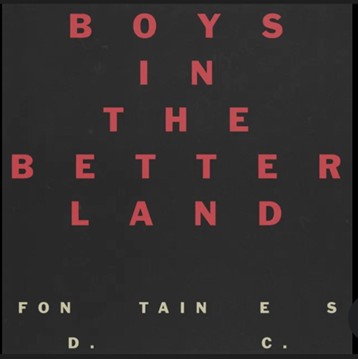
(TAXING) THE BIRD IN THE HAND… AND THE TWO IN THE BUSH?
Read more
November 15, 2025 | 11 min read
Author: Andy Wood

Introduction
“You’re a rock star, porn star, superstar
Doesn’t matter what you are
Get yourself a good car, get out of here”
“Boys in the better land,” Fontaines D.C.
So, endeth the sermon from the Fontaines D.C.
Now, it is not entirely clear whether they were commenting on the ubiquitous reports by Henley & Partners which have painted a picture of a mass millionaire exodus from the UK.
However, it is important to note that critics point out that the data relies more on modelling and marketing than official migration records.
We perhaps are therefore in a ‘factual’ stalemate. Still, most advisers in the space report more conversations… and more clients quietly weighing their options.

Image – Homer Simpson on wealth and tax research
So, if people are considering a move to a ‘better land’… are the ‘better lands’ any, well, better?
Should we get a good car, or more likely, a good jet, out of here?
Tax
Yes, I know tax is boring. I’ve worked in it long enough.
However, tax will likely be a consideration for most making the move from their native (or otherwise long term places of residence) if that place is one of the mainstream western countries.
I make this slight qualification as it is not true to say that only Monaco, Dubai or Caribbean living provides more benign tax opportunities these days.
As a means of attracting wealthy and internationally mobile individuals, various ‘proper’ European countries have been shilling various tax advantaged regimes. This includes (a non-exhaustive list) Portugal, Italy, Cyprus and even Ireland.
But tax… and say it quietly… isn’t the most important thing in the world.
At the end of the day, tax is simply a cost.
Some will say the price of civilisation. Others will say its theft.
But either way, you’ll be worse or better off depending on the levels you are paying to your local tax club.
Generally speaking, though it might not seem like it at times, our tax club fees give us, as members, the rights to certain benefits.
For example, schooling for kids, access to health, roads (which may or may not be full of potholes) etc.
Of course, if you already pay for some of these outside of state provision, then this becomes, pardon the part pun, academic.
But tax is sometimes not spelled T.A.X.

For example, some Middle Eastern countries have very attractive headline rates of tax. So do other countries around the world.
However, certainly in respect of the former, there are many hidden costs which may as well act like a tax – visas, trading licences and other ‘cuts’ and ‘slices’ that the aforementioned Thenardier would be impressed by.
Some of these countries will not have state funded education or health either. So, if you are used to this in, say, the UK then this will be an added cost. If you already pay for these things then, as I said above, this added cost might be nil or nominal.
Cost of living[1] might also be considered a tax by any other name… or, if you prefer, tax is just another cost of living.
[Aside – it is worth noting that one needs to properly turn in one’s membership of the old tax club in order to achieve any benefits. This is the most important step for tax purposes. This usually requires one to break residence. In the UK, this is done under the Statutory Residence Test. Other countries have their own tests of residence. A US citizen will generally be taxed on worldwide income in any event]
Existing relationships
It has to be said, the reason why many people stay ‘in situ’ is to do with family and friends. It is the people that make a place.
More unkindly, some might say they are held hostage by their families and friends
Handcuffed to the fiscal radiator[2].
Indeed, I get the impression that the current UK Government is leaning into their belief that the electorate have Stockholm Syndrome.
For families, the calculus often changes with time. Teenagers sitting GCSEs or A-levels don’t easily uproot. Children with special educational needs may struggle to find comparable provision overseas, though some international schools do excel in tailored support.
Ageing parents, too, can tether the most adventurous spirits. What feels like freedom at forty can become isolation at fifty-five when the calls home grow more frequent.
This illustrates that the ‘better land’ of today may not be better tomorrow.
Of course, you are allowed to go back and visit.
Although not a simple test, the SRT mentioned above should give some clarity and certainty as to how may trips back home the prodigal son or daughter can make.
Flights to the UK from, say, Portugal are pretty cheap and short. Flights from Australia are not.
Again, depending on the distance and frequency, you might pay a pretty packet for flights back and forth. Consider this as another of those quasi-taxes (including the air duty, which is an actual tax).
Opportunities
Historically, migration has often been prompted by opportunity.
Sometimes more as a stick, like war, famine or lack of work.
Sometimes more as a carrot, or like in the times of the US goldrush, a carat.
There are modern day examples of both of these.
Even in modern times, conflicts around the world are driving people to move their lives. For instance, the UAE has seen a significant influx of both Russians and Ukrainians following the conflict in that part of the world.
Of course, one of the key opportunities is the desire of moving to a place to work or start a business where the generally growth prospects are better. Where business is conducted in English (if that’s all you can speak) and a strong expat community might further seal the deal.
Trump, in his own inimitable style, has acted as both a stick and a carrot. It is reported that a number of high-profile, left-leaning individuals have moved to the UK. Conversely, anecdotally, many businesses have returned to the US due to, say, the improved environment for tech start-ups there.
I have promised not to drone on about tax – but special regimes, including the UK’s new Foreign Income and Gains (“FIG”) regime, as well as the ones mentioned above, will likely attract.
Reinvention
Some people might move overseas to re-invent themselves. Start a new career, the end of a relationship.
For some, reinvention means swapping pinstripes for paddleboards.
Divorcees become entrepreneurs; bankers become brewers.
Artists rediscover their muse in the Mediterranean sun.
Others pursue spiritual or health resets — yoga in Ubud, wellness in Dubai, or simply a quieter pace somewhere with fewer potholes (am I obsessed with road surfaces?)
Sometimes it is simply easier to shed an old identity and start again in a new space.
Culture & lifestyle
Again, unless you are a workaholic, you probably want to enjoy some culture and some semblance of a decent lifestyle… right?
Of course, this is horses for courses[3]. So here is a smorgasbord of incoherent ramblings about what you might think about from this perspective.
Like art? There’s a Louvre in France… and a Louvre in Abu Dhabi.
In London there’s a museum of Natural History. In Dubai, there’s a Museum of the Future.
You can ski in the Alps, the Mall of the Emirates or Trafford Park.
Do you like music? If so, do the biggest (or your favourites, anyway) bands, performers and other entertainers tour regularly?
Do you enjoy sports? Do you enjoy going to live matches or are you happy watching them on the TV? For example, Footie fans living in the middle east might struggle to get to live, elite level matches, but you can actually see more EPL on TV in the region than you can in the UK (due to the anachronistic Sat 3pm fixture blackout in UK). You even get to see Andy Gray and Richard Keys waffle on about how “the game’s gone” after the latest VAR intervention.
Do you enjoy participating in outdoor sports much of the year? Clearly, in some regions, the summer months are far too hot.
Similarly, do you enjoy walking in the hills all year round? This might be better in periods of rain and cold than 50 degree heat. Also, make sure there are some hills.
Indeed, in the middle east the summer will generally be the thorn in your side. People say you get used to it. However, this really means they get used to avoiding it. This consists of staying inside in the air conditioning and / or escaping for much of the summer. If you can afford it, this is a cost. If not, you might find the alternative less appealing especially as many people you know will likely have flown the rather stifling coop.
Do you want big city living with the convenience of everything being delivered at the drop of the app?
Or would you like countryside and nature around you… rather than constan end to end traffic?

Image – an attractive bird in Dubai (hoopoe)
Community and belonging
We talked about existing relationships above. What about new ones?
In many expat hubs, community life can feel transitory. You meet people quickly, everyone’s friendly, and yet many, in a sense, are simply passing through.
The relationships can be warm but fragile.
Friendship groups often change with the school year or the renewal of a visa.
Of course, it is still possible to find belonging in unexpected places. Joining groups and clubs, volunteer projects, or simply become regulars at the same café until they’re recognised.
The rules are the same but, on the basis you are likely to be in the same boat as many around, you might find that people are more receptive to speaking to strangers.
However, it can take time, and time is something that some people forget to budget for in this age of instant gratification.
Of course, there are more ‘legalistic’ forms of belonging. For example, some people will want to see a clear path to permanent residence / citizenship or even a passport.
In some countries, this is impossible. This might be important for some and not for others. In other cases, getting such a status might simply be a financial transaction.
So, do you want to put down deeper roots… or are you happy being a ‘guest?’
Safety and governance
The other element that rarely makes the glossy relocation brochures is safety and governance.
In some jurisdictions, legal systems are predictable, transparent, and even dull… which is exactly what you want when your wealth, liberty or business depends on them.
Some regions are feted because crime rates are low and the streets are clean. Of course, being able to walk the streets at any hour without fear or life and limb is a priceless benefit.
However, safety extends far beyond crime rates. What about the safety of expression? Can you criticise, question, or simply live as yourself without fear of repercussion? Earlier, I mentioned the idea of laying down roots versus being a perennial guest. And the truth is, if you see yourself as a guest, however welcome, you may naturally take a lighter interest in the politics of a place, except where it touches your own daily life
There’s also financial safety. Can you move your money freely? Are property rights enforced?
What happens if the political winds change or if your residency programme is quietly discontinued, as we’ve seen with some “golden visa” schemes in Europe?
Conclusion
So, returning to the question, is that better land, better?
The first question is probably, ‘is where you are living at the moment perfect for you and your family?’
The answer is almost definitely no.
It isn’t ‘perfect?’ Nowhere is.
But when one considers all of the relevant factors above, and no doubt some extra ones, is it the best place for you?
Not just tax. All of the areas.
Is this the best place for you and your family now?
Or is there really a better land?
That’s a question only you can answer…
[1] Indeed, inflation is often described as a tax
[2] Of course, this is absoultely not what I think. I have friends and family who might read this.
[3] Indeed, riding a horse around a course might be exactly what someone is looking for.